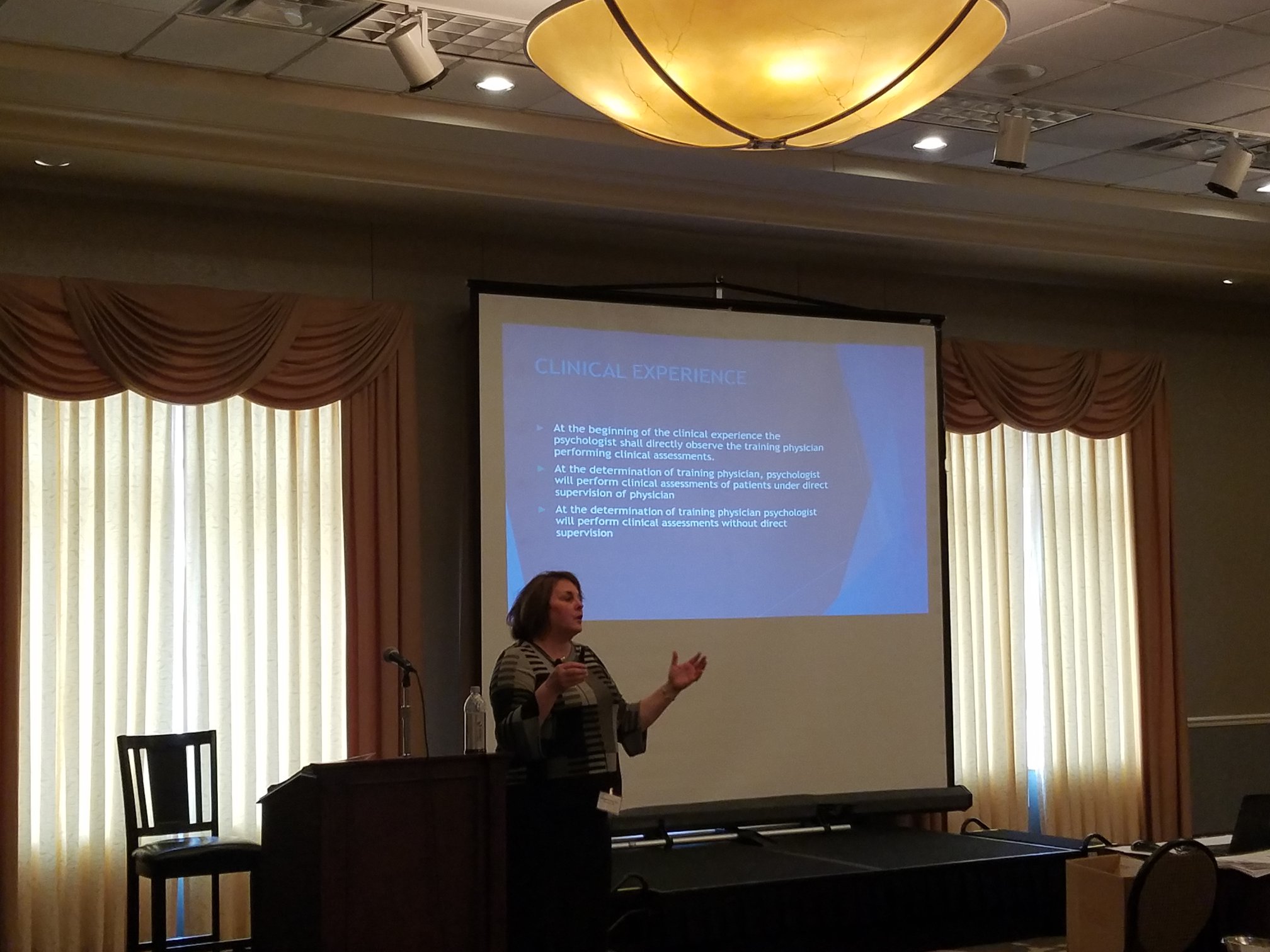Prescriptive Authority for Psychologists in Iowa
Brief History
IPA began exploring the possibility of pursuing prescriptive authority for psychologists in 2004. After extensive surveying of membership, discussion with members at all career stages, and generation of committee strategic plan, legislation was first filed in Iowa in 2013. Prescriptive authority legislation passed and was signed into law in Iowa by Governor Terry Branstad in May 2016. Members (particularly Bethe Lonning and Brenda Payne) worked tirelessly in collaboration with the Boards of Psychology and Medicine on the Administrative Rules, which were finalized in February 2019.
Training in Iowa
Iowa has two opportunities in the state for training. In 2019, NMSU's training program (Partnerships help NMSU psychopharmacology program thrive during COVID-19) came to Iowa in collaboration with St. Ambrose University in Davenport, IA. Specifically this training would involve sections of the mandatory classes on pathophysiology and physical assessment to be given at SAU. Please see the link for NMSU below for more information. In the fall of 2022, Drake University in Des Moines, IA began an MSCP program through their College of Pharmacy. Please see the link for the Drake program below for more information. You may contact Dr. Bethe Lonning, Chair of IPA’s Psychopharmacology Committee for more information and view her presentation to the IPA membership on Prescriptive Authority can be found HERE.

Features of Iowa Law
- Based on the New Mexico legislation
- Requires a post-doctoral master’s degree in clinical psychopharmacology. The law does not have ‘APA designation’ written in it as this was not acceptable to those who opposed the law.
- Requires practicum and 2 years of supervision. The second year of supervision was in response to those concerned about prescribing to special populations such as children, the elderly and pregnant women. The second year of the supervision is to focus on prescribing to those populations if the psychologist desires to have those populations as part of their practice.
- Requires an ongoing collaborative practice agreement with a prescribing physician.
- The supervising and collaborative physicians are not limited to psychiatrists.
Education
- Applicants will possess a post-doctoral master of science degree in clinical psychopharmacology from an APA designated program.
- The degree shall be a minimum of 30 credit hours not including practicum
- A minimum of 1/3 of the coursework must be completed in a live interactive format
Clinical Experience and Practicum
- Clinical training involves direct observation of physician in addition to supervised and independent practice
-
Minimum of 600 patient encounters to be completed by the end of practicum.
-
Competency in reaching milestones of health history, physical exam and neurological exam must be demonstrated
-
Psychologist will observe, evaluate and treat patients encompassing a range of ages and a variety of diagnoses. At least 100 hours of the 400 hours must be completed in a psychiatric setting, and at least 100 hours of the 400 hours must be completed in a primary care or community mental health setting
- Competencies evaluating in the following domains: physical exam, review of systems, medical history review, assessment indications and interpretations, differential diagnosis, integrated treatment planning, consultation and collaboration, treatment management, and appropriate medical documentation
Supervised Practice
-
Completion of a minimum of 2 years of supervised practice with a minimum of 300 patients diagnosed with a mental health disorder and pharmacological intervention is considered for treatment. A minimum of 100 patients will be treated with psychotropic medication during this time period. Additional specifications required if treating special populations (e.g., children, elderly patients, patients with serious medical conditions).
-
Prescribing psychologists will consult with the primary care physician of patients. Patients must have a designated primary care physician for a psychologist to be able to prescribe to them.
-
A prescribing psychologist will have a collaborative practice agreement with a physician at all times.
If you'd like to receive more information or updates about the prescriptive authority movement in Iowa, please contact RxP chair Elizabeth Lonning!
RxP rules for Psychologists
APA DESIGNATED PROGRAMS FOR MSCP:
New Mexico State University, Las Cruces, New Mexico
Alliant University, California School of Professional Psychology
Fairleigh Dickinson University, Teaneck, NJ
Chicago School of Professional Psychology, Chicago IL
Idaho State University
Drake University program
Drake University
OTHER MSCP PROGRAMS:
PEP REVIEW RESOURCE MATERIALS
FDU, NMSU and Alliant have PEP review classes to assist in preparation to take the national exam. Some of the review programs are part of the program, others are separate. In addition, the resources listed below are study materials those who have taken the PEP suggest using for preparation:
1. Kaplan & Sadock's Synopsis of Psychiatry (Behavioral Sciences/Clinical Psychiatry)
2. APA Handbook of Clinical Psychopharmacology
3. Massachusetts General Hospital Psychiatry Update & Board Preparation by Stern, Herman, & Rubin
4. Stahl's Self-Assessment Examination in Psychiatry
5. Prescribing Psychotropics: From Drug Interactions to Genetics by Aiken, Feder, & Carlat
APPLICATION FORMS FOR CONDITIONAL PRESCRIBING CERTIFICATE:
https://idph.iowa.gov/Licensure/Iowa-Board-of-Psychology/Licensure
***Information regarding applying for full prescribing license will be added when the information is available
***Once the conditional prescribing period is complete, please complete this application for submission to the Board of Psychology.
DEA/CSA/PMP INFORMATION:
From the Iowa Board of Pharmacy:
Registration for the Iowa PMP requires that the applicant have a federal DEA registration number. Before an individual can get a DEA number, the individual must have an Iowa Controlled Substances Act (CSA) registration. Before the Iowa CSA registration is issued, the individual must be appropriately licensed by a professional licensing board and must have prescriptive authority.
The Pharmacy Board also confirmed that it has established a category in the PMP for psychologists and they will enable this category soon.
DEA = Drug Enforcement Agency
CSA = Controlled Substances Act
PMP = Prescription Monitoring Program—Iowa law requires registration in this
|

